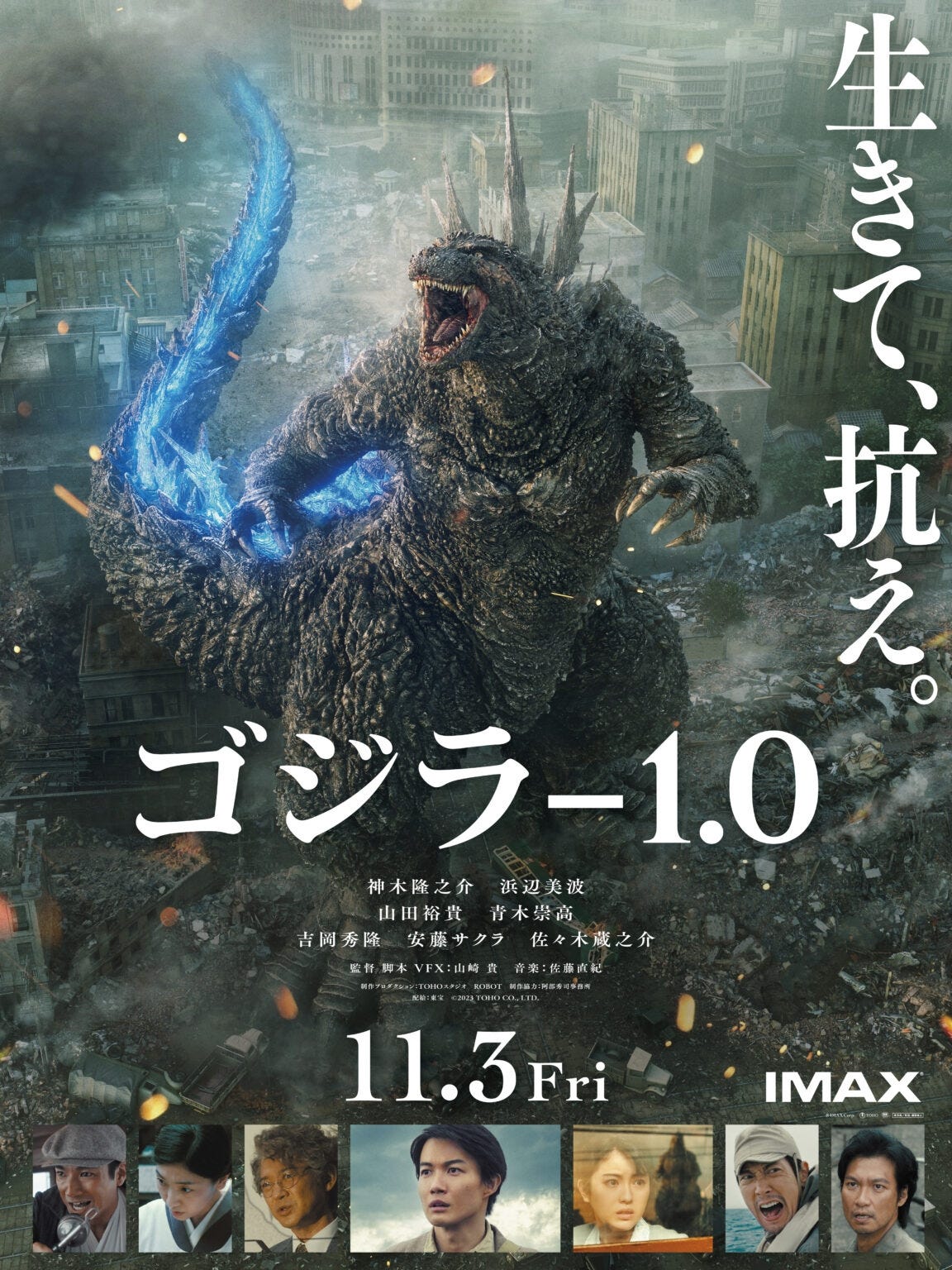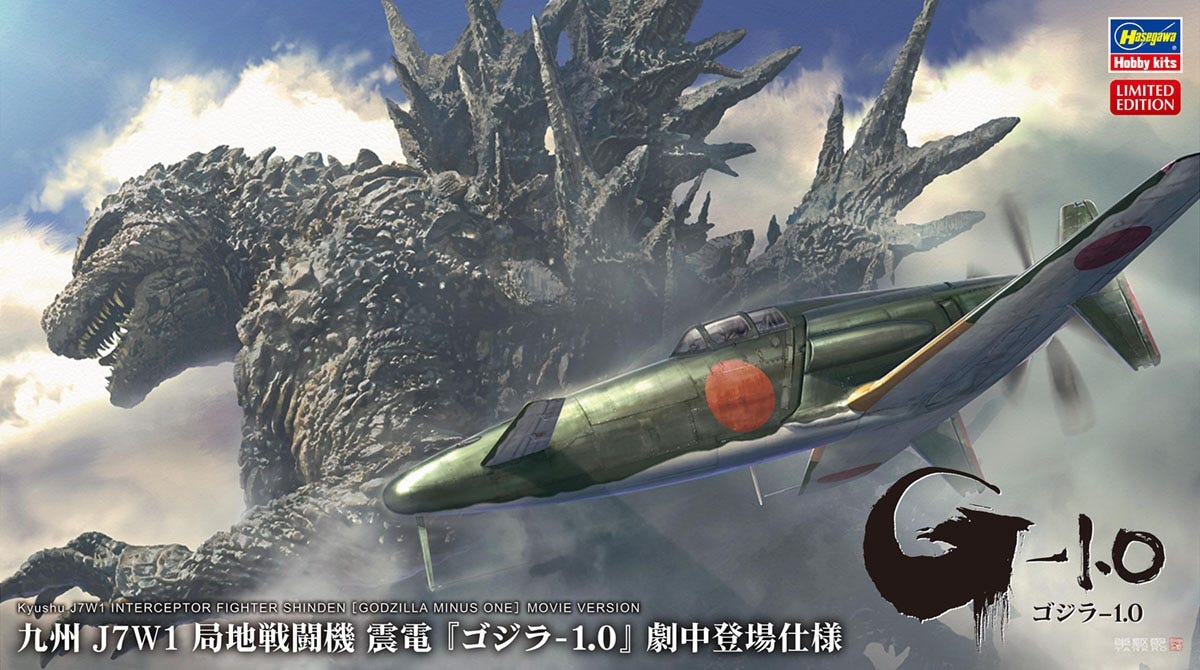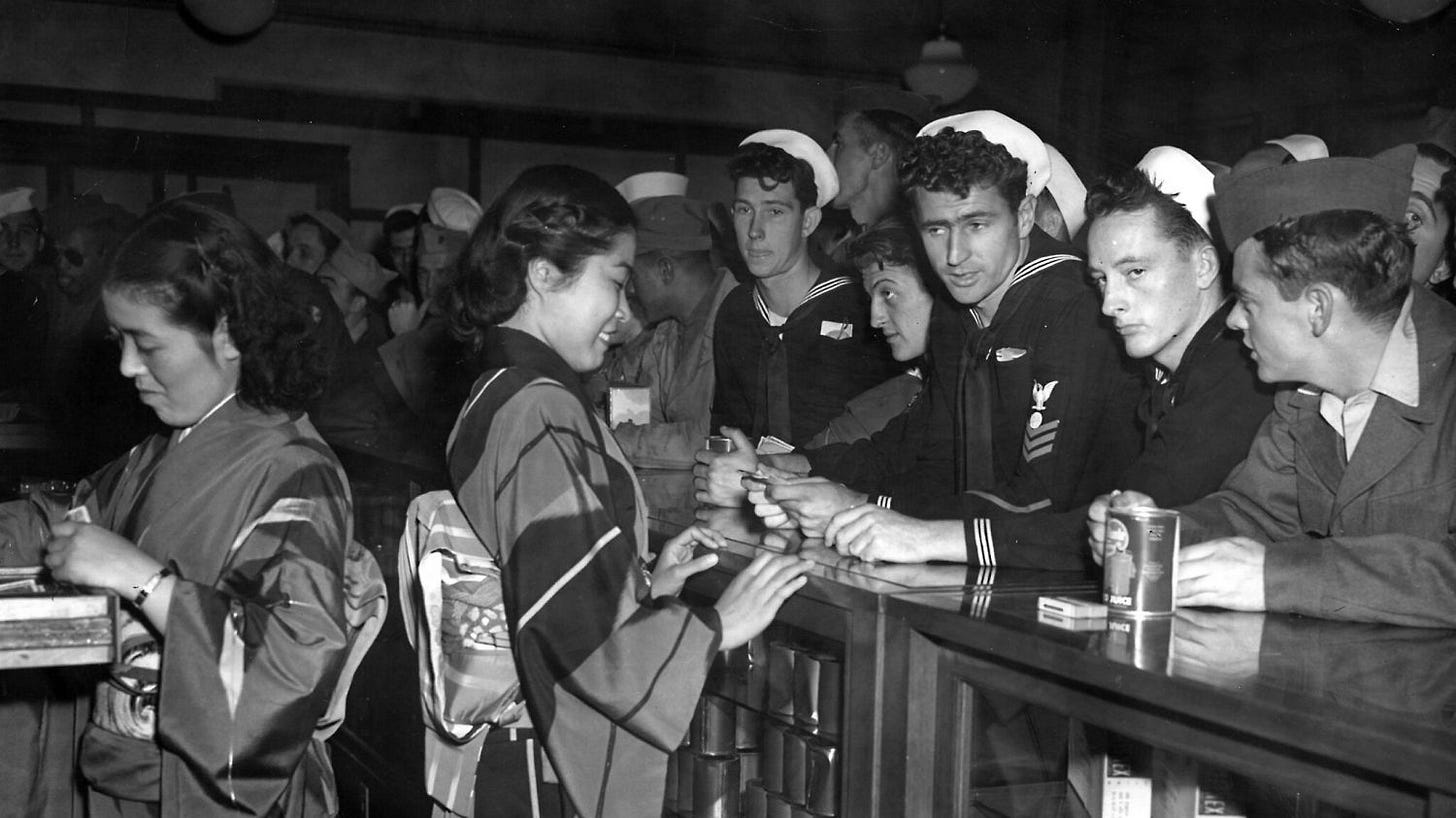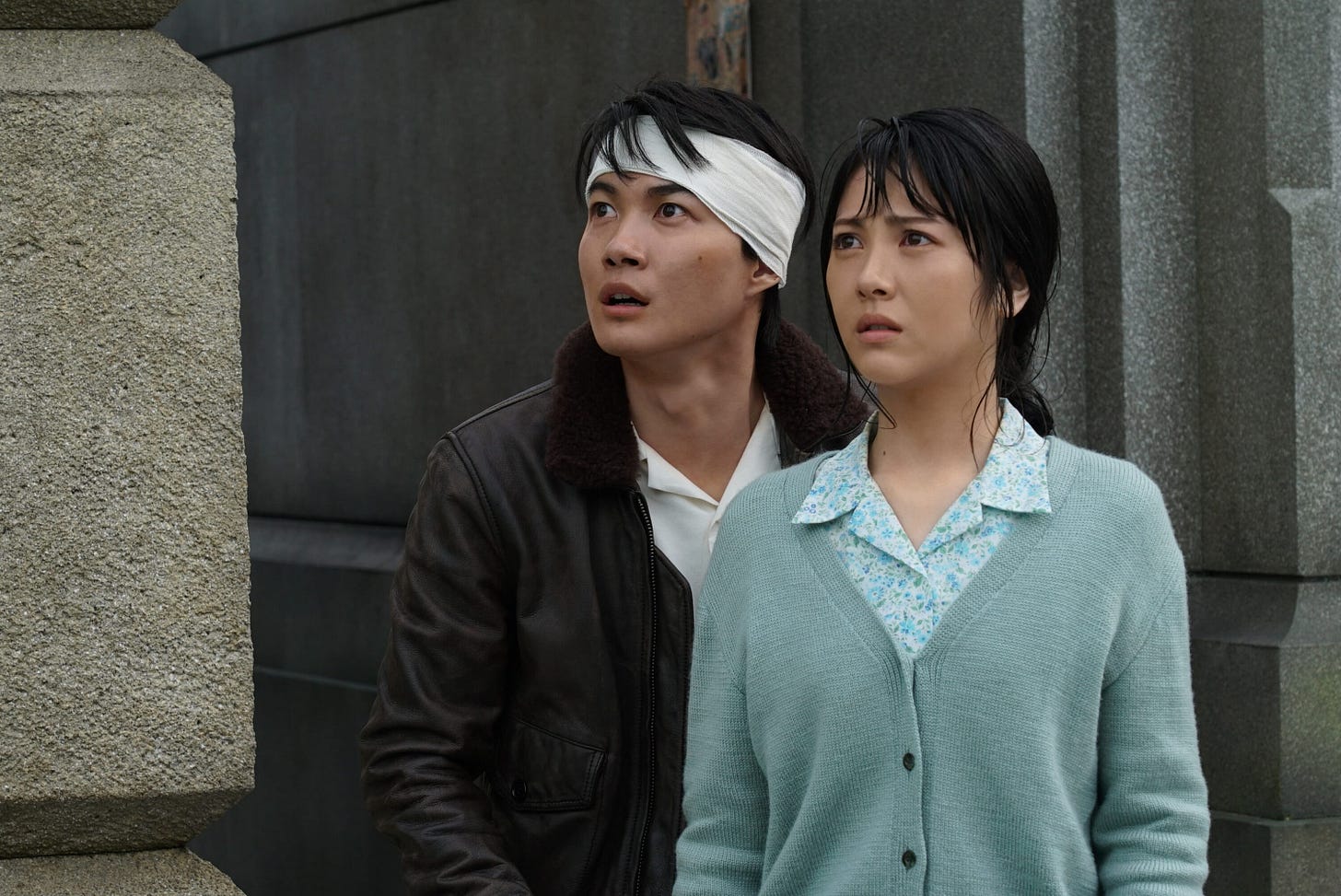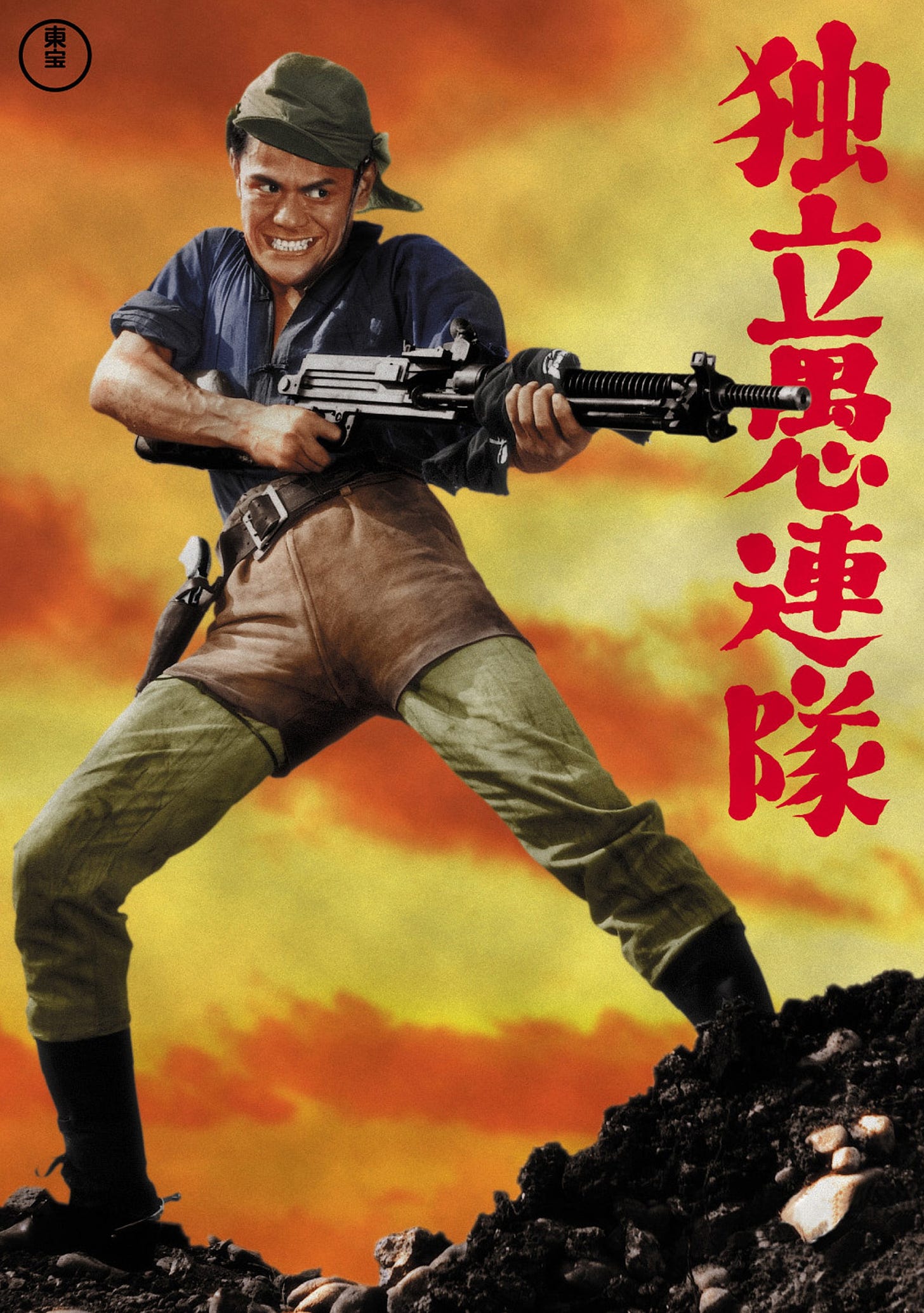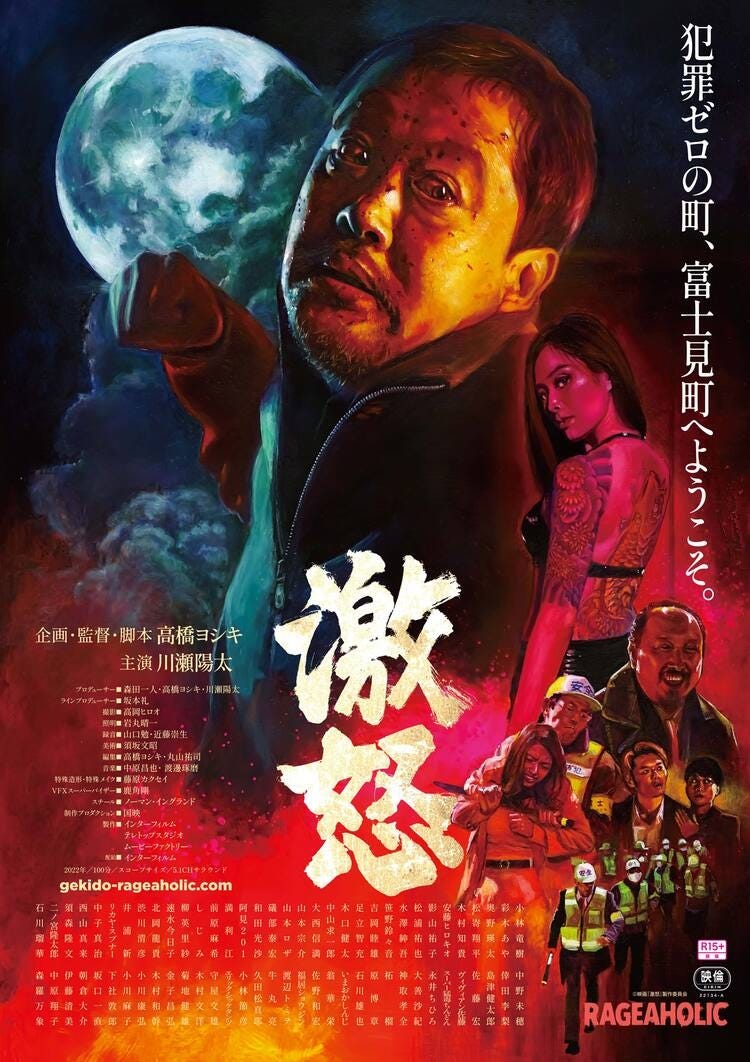Does Godzilla Minus One Have a Post-War Japan Problem? - An Interview With Yoshiki Takahashi
The Japanese writer / director of "Rageaholic" takes aim at the Big G's latest flick
Yoshiki Takahashi is a screenwriter, director, critic, graphic designer, and book author who lives in Tokyo, Japan. He’s also a hell of a drinking buddy who always has something interesting to say about the movies, both old and new. When I saw Yoshiki’s take on the recent hit film Godzilla Minus One posted in Japanese, I felt like I had to share his POV with English readers. Here then is an original interview I did with regarding the Big G’s latest movie GODZILLA MINUS ONE!
TokyoScope: There’s been many academic papers and books written on Godzilla and the post-war era, both in Japan and abroad. Godzilla Minus One felt like the first time a Japanese filmmaker has so thoroughly drilled down on those themes since the original 1954 film. How do you think it came out?
Yoshiki Takahashi: The very first Godzilla film in 1954 was all about the post-war era and it revived the nightmarish memory of the bombing of Tokyo, alongside the nuclear fear of the cold war era. And it worked, because the first Godzilla was set in 1954, when Japan was finally about to overcome the wounds of war. The city of Tokyo was finally revived. Then Godzilla comes and destroys everything again with its radioactive ray. It’s horrifying because it’s like Godzilla destroys hope and brings back traumatic memories to the people who just thought they overcame them.
On the contrary, the monster in Godzilla Minus One attacks an already devastated Tokyo where plenty of people just experienced air raids just a few months earlier. There aren’t many things left to be burned down. And if it had a few of them left standing, the movie should have shown how people back then dealt with it (like how they battled the fire bombings) but it didn’t. So, it missed an opportunity to establish a situation where Godzilla can really be a menace. It also missed the opportunity to show the mental state of the bombing survivors. Anno’s Shin Godzilla paid a grand homage to the original 1954 Godzilla and the city of Tokyo was brutally destroyed, because that’s what the fear of Godzilla is.
Destroying a few buildings and a train, like in Godzilla Minus One, is not at all enough, because it doesn’t invoke the memory of the heavy damage of the fire bombings.
What’s been the critical reaction to Godzilla Minus One in Japan been like so far? How are others reacting to Yamazaki’s depiction of post-war Japan?
It looks like most people are praising it like as if it’s got something important to tell. Also, the CGI effects are praised because it’s got "Hollywood quality" or something.
TokyoScope: Knowing director’s Takashi Yamazaki’s previous films, which tend to be retro and sentimental, were you at all surprised by the content and style he used in Godzilla Minus One?
Yoshiki Takahashi: When I saw Yamazaki’s film The Eternal Zero (2013), I thought it looked like the box art of a plastic model kit. It failed to show the essence of war but just showed pretty pictures of zero fighters flying around. Godzilla Minus One felt the same. It’s pretty and it’s hollow.
I know your family was active in post-war society in Tokyo. Can you talk about that a bit and how that might have influenced your feelings about the film?
My father worked as a messenger boy at the US occupation army camp. My mother worked for the GHQ censorship; reporting what was broadcasted on the radio on a daily basis and such. So, I was very surprised that Yamazaki decided to show no MPs, no GIs, no US occupation army. There was a scene with a couple of pan-pan girls but if there’s no GIs, how is it possible for them to prostitute themselves in the first place?
In Tokyo especially, the Ginza area was literally PACKED with GIs and MPs back then. I asked my mother after watching Godzilla Minus One how was it and she said “Oh yes, the streets were full of GIs.” I told her I just saw this Godzilla movie set just after the war and there was no GIs. She just laughed and wondered why.

You grew up in Japan in the 1960s and 1970s. What kind of impact from the war did you directly see and feel in Tokyo during that time?
There were still disabled veterans begging in Tokyo’s Shinjuku ward back in the 1970s. There were many magazines and books and even manga that featured photos and articles on WWII. There were documentary TV shows as well. Kids who were into plastic model kits like me were making tanks, battleships and fighter planes, because it was before the Gundam plastic model kit boom. Yukio Mishima failed his coup attempt and committed harakiri in 1970. The overall atmosphere of Japan was lively because it was in the middle of a high-growth period, but if you looked around you could still see the wounds and the memories of war here and there.
Many people are comparing Godzilla Minus One to Ishiro Honda’s original Godzilla from 1954 and saying it is continuing the tradition of a kaiju movie as a serious adult drama that deals with the ghosts of the war and the atomic age. What do you think?
In my opinion, a "serious adult drama" is not about actors making serious faces and yelling at each other about "serious" stuff. Godzilla Minus One had a lot of that, but it doesn’t make the drama adult or serious. But I mean come on, all those Jurassic Park and Jurassic Park 2 rip off scenes were enough for me not to take Minus One seriously.
My reading of the film is that Godzilla represents the trauma of the war that the main character (and Japan by proxy) has overcome to heal and move forward. Yet the film doesn’t really express any remorse or have any ethical debate about Japan’s role in the war. Is there any way it could have done that and still be a “mass entertainment film”?
Perhaps older Japanese films like Japan's Longest Day (1967) and Under the Flag of the Rising Sun (1972), or Dokuritsu gurentai (1959) and The Hoodlum Soldier series could provide a hint. On the other hand, the Germans can’t really make a war movie that is a "mass entertainment" and the same could be applied to Japanese cinema.
Do movies have to have a commitment to accurately depicting reality and historical accuracy? Especially Godzilla movies? For instance, why aren’t we angry at Raiders of the Lost Ark for how it deals with the Nazis simply as “bad guys”?
Raiders of the Lost Ark is basically a men's adventure kind of pulp pastiche combined with the 007 series so it’s not strange to represent bad guys as just bad guys, especially when it’s Nazis. Suppose there was an American film set in 1950s San Francisco Chinatown and the cast was all Caucasian, would that be okay if it was a Godzilla film? I don’t think so. Raiders of the Lost Ark is set in 1936 and the German North Africa campaign started in 1940, so its "historical accuracy" could be debated though.
Let’s talk about monsters. What did you think about the depiction of Godzilla himself in Godzilla Minus One? Did this work even as just a monster movie?
I thought the overall design was okay because it looked like Godzilla, but the action of the dorsal plates was questionable. It looked like a gimmick for children’s toy (Maybe it was intended?).
Dorsal plate action from Godzilla Minus One below…
Do you have a favorite Godzilla or Toho kaiju movie? Which ones do you find entertaining or interesting?
The 1954 original and Godzilla vs. Hedorah (1971). I also love to see Minilla being ridiculous, so I watch Son of Godzilla (1967) and All Monsters Attack repeatedly.
Are there any Japanese movies about post-war Japan you can recommend to people who might want to learn more about the era?
Under the Flag of the Rising Sun (1972), A True Story of the Private Ginza Police (1973), the first Battles Without Honor and Humanity film (1973), and Shohei Imamura’s Black Rain (1989).
As someone who is making films yourself, what’s your impression of the current state of the Japanese film industry? What do you think the future looks like?
It’s getting poorer and poorer along with the country itself. Finance is one thing. A budget of 6 to 7 million dollars is considered a huge blockbuster movie in Japan. Most Japanese films are only made for around $300,00 to $700,000 dollars. There are many good aspiring and talented directors, actors and skilled staff but it’s very hard for most movie industry people to live on just making films. Sadly, it’s hard to imagine a bright future.
Finally, are there any projects or things you have done or are working on that you would like people to know about?
I’m writing a new movie script in the hope of getting made but I have clue right now how that’s going to happen. Let’s hope it gets financed somehow!
Thanks, Yoshiki! Here’s the movie poster for his 2022 film Rageholic. Follow Yoshiki on Twitter and on Instagram!




